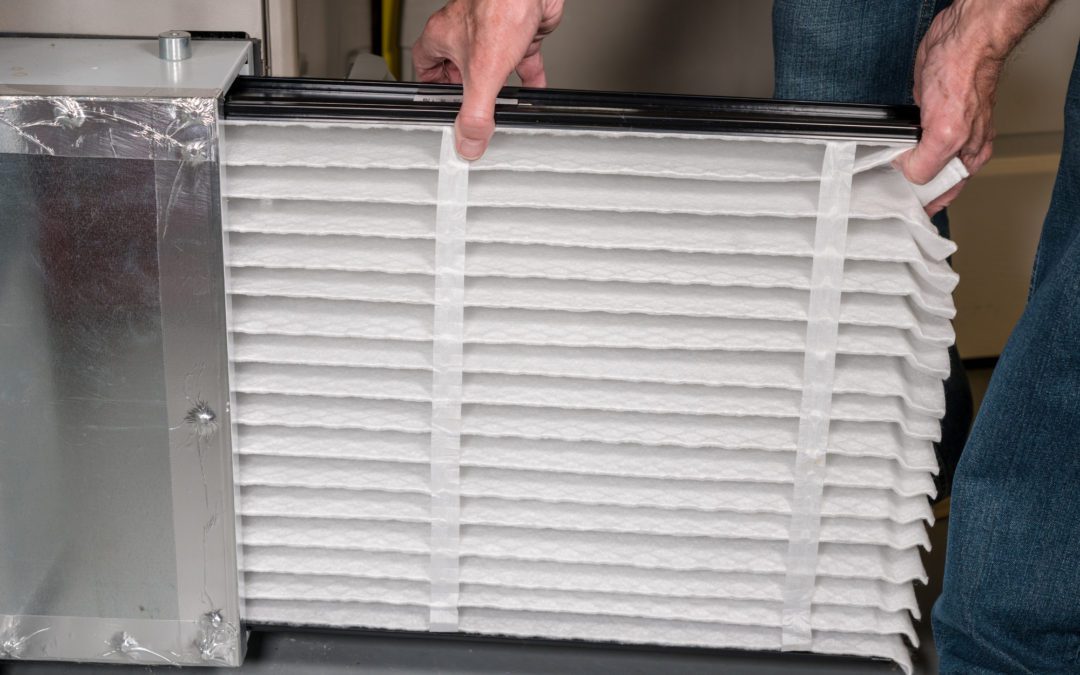Although often overlooked, an air conditioner’s air filter is a critical component in the system. It has a massive impact on the quality of air pumped into your home via your HVAC system, removing dust, debris, and other harmful particles. Furthermore, the energy that the air conditioner consumes is based on the state of the air filter. Those are the two primary reasons why you should change your air filter regularly.
What Does The Air Filter Do?
As its name suggests, the job of an air filter is to filter the air and allow only clean, healthy air into your home. It acts as a barrier between you and the harmful particles that are present in the air. These include dust, smoke, bacteria, mold spores, and other pollutants that pose a health risk to all occupants inside a home. These micro-particles are responsible for worsening existing respiratory problems such as asthma and compromising the immune systems of healthy people.
How to Change the Air Filter?
Depending on your system, some air filters can be wiped down and used again, but others require replacement. Because it’s a component that you must regularly replace, accessing it is a simple task. It shouldn’t take longer than five minutes with a screwdriver. Turn off the air conditioner, then locate the air filter which is usually in one of the vents. Remove the access panel, and you should find the air filter in front of you. Replace it with the new filter and ensure the arrows correspond with the direction of airflow.
Why Does the Air Filter Need Changing?
Similar to the use of a vacuum cleaner, at some point, you have to remove the bag from inside and throw out the dirt you’ve collected over some time. The same principle applies to air filters. Because collecting dust and debris is their primary duty, over an extended period it restricts the airflow causing the HVAC system to work harder, thus consuming more energy. Additionally, there is no more space for more particles to be captured by the filter allowing for it to enter your space.
Benefits of Changing the Air Filter
Replacing your air filter regularly ensures your system operates efficiently, thus providing you with several years of service. Clogged filters place the motor and system at risk due to working too hard. As a result, it may overheat or breakdown altogether. To ensure your system is functional before a heavy-use season, consider these factors:
- Examine the type of filters requires for your particular system. Read the manufacturer’s guide if you’re attempting the replacement as a DIY project.
- Consider the fact that you have pets living at home. Air filters must be changed more frequently when pets are present.
- Additionally, the number of occupants dictates how often you need a replacement air filter.
- Any family members with existing chronic respiratory problems or allergies demand frequent air filter changes.
Avoid Mold Growth
A dirty air filter is the ideal breeding ground for the development of mold. If the mold spreads, it could have dire consequences for your HVAC system. When your system runs, the spores are released into the air that you breathe in and can cause severe illnesses.
Save Money and Energy
According to a recent study, a well-maintained, efficient air conditioning system with a clean air filter can reduce energy consumption by up to 15 percent. When the filter is blocked, it affects the temperature of the air, causing the system to put in extra work and use more energy.
Maintains Your Health
Apart from saving on repair costs or the added energy use, regularly changing the air filter ensures that you always breathe in clean, quality air. As a result, you avoid developing any illnesses as a result of harmful particles in the air. We recommend that if you have more than one pet living indoors or someone suffering from allergies, you should change your air filter every 20 to 45 days.
How Often Should the Air Filter be Changed?
Apart from the exceptional circumstances of live-in pets or people with allergies, a quality air filter should be changed every six months. Because it’s quite a lengthy time, it’s easy to forget this simple task. Therefore, you should physically mark the dates down on a calendar to ensure you change the air filter at the recommended intervals. Furthermore, you can physically inspect the condition of your air filter. A dark appearance means it’s filled with dirt and must be changed. Lower quality filters need replacing more frequently, probably once a month, which will cost you more in the long term. Hence, it’s advisable to invest in high-quality air filters.
Conclusion
While it is possible to replace your filters periodically if you’re not into DIY, you should call in a professional contractor to address your HVAC maintenance. Following this route gives you peace of mind that your system is being handled by a trained technician, adding years to the service you receive from your HVAC system.



